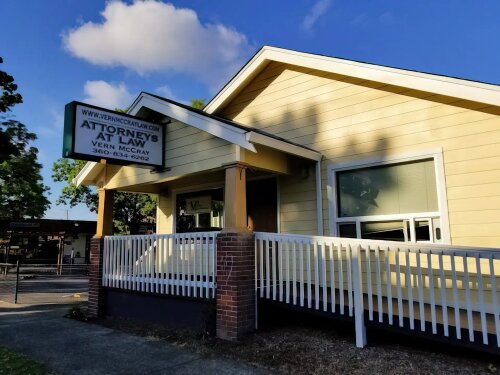Best Trusts Lawyers in Washington
Share your needs with us, get contacted by law firms.
Free. Takes 2 min.
Or refine your search by selecting a city:
List of the best lawyers in Washington, United States
About Trusts Law in Washington, United States
Trusts are legal arrangements where one party, known as the trustee, holds and manages property or assets for the benefit of another, known as the beneficiary. In Washington, trusts are commonly used for estate planning, asset protection, and as a tool for managing property if the owner becomes incapacitated. The state uses both the Washington Trust Act and relevant portions of the Uniform Trust Code, providing a modern framework for creating, modifying, and terminating trusts. Whether you wish to safeguard assets, avoid probate, or provide for minors or loved ones with special needs, trusts are a flexible and valuable option in Washington.
Why You May Need a Lawyer
Certain circumstances can make consulting an attorney with expertise in trusts crucial. Here are some common situations where legal help is especially important:
- You own substantial assets or real estate in Washington and want to minimize probate for your heirs.
- You wish to set up a special needs trust for a loved one who receives government benefits.
- You are involved in a family dispute over the handling or creation of a trust.
- You want to update or change an existing trust due to changes in family circumstances or laws.
- You have concerns about trustee misconduct or need help interpreting trust documents.
- You are a trustee and need guidance on your legal responsibilities or proper administration.
- Your estate or trust involves assets or beneficiaries located outside Washington.
While basic trusts may appear straightforward, Washington law is very specific on procedures, notice requirements, and tax implications. A lawyer can help avoid mistakes that may result in future legal complications or litigation.
Local Laws Overview
Washington’s trust laws are governed primarily by Chapter 11.98 of the Revised Code of Washington (RCW), known as the Trusts and Trustees Act. Key aspects include:
- Types of Trusts: Washington recognizes a variety of trusts, including living (inter vivos), testamentary (created by will), irrevocable, revocable, and special needs trusts.
- Trustees’ Duties: Trustees have a fiduciary duty to manage trust assets in the best interest of beneficiaries and are subject to statutory requirements regarding reporting and investment management.
- No State Estate Tax Threshold: Washington imposes an estate tax on estates over a certain value. Proper trust planning can help limit state estate tax exposure.
- No Rule Against Perpetuities: Washington allows “dynasty trusts” that can potentially exist for generations, as there is no strict time limitation on how long trusts can last.
- Modification and Termination: Washington law allows for modification or termination of trusts in certain circumstances, with court approval or by consent of interested parties.
Understanding these laws and how they affect your personal circumstances is essential for making the most of what trusts can offer.
Frequently Asked Questions
What is a living trust and how does it work in Washington?
A living trust is created during your lifetime and allows you to transfer assets into the trust to be managed by a trustee. In Washington, living trusts can help avoid probate, provide privacy, and ensure continued management if you become incapacitated.
Is it possible to use a trust to avoid probate in Washington?
Yes, assets held in a properly funded trust generally do not go through the probate process in Washington. This can save time and reduce costs for beneficiaries.
What are the responsibilities of a trustee in Washington?
A trustee must act in the best interests of the beneficiaries, keep accurate records, invest assets prudently, and provide regular accountings as required by law or the trust document.
Can I change or revoke my trust after I create it?
In Washington, a revocable living trust can be modified or revoked by the person who created it as long as they are mentally competent. Irrevocable trusts, however, are generally more difficult to change.
What happens if a trustee fails in their duties?
If a trustee breaches their fiduciary duties, beneficiaries can petition a Washington court for an accounting or removal of the trustee, and sometimes to recover damages.
Do trusts in Washington protect assets from creditors?
Certain types of trusts in Washington may offer creditor protection, particularly irrevocable trusts, but this largely depends on how and when the trust was established.
Are there taxes on trusts in Washington?
Washington imposes an estate tax on estates above a certain threshold. Trusts themselves may be subject to income tax, and the tax implications depend on the type of trust and distributions made.
Do I need an attorney to create a trust in Washington?
Washington law does not require an attorney to create a trust, but professional legal guidance ensures your trust is valid, properly funded, and meets your goals, reducing the risk of future disputes.
What is a special needs trust?
A special needs trust in Washington lets you provide for a loved one with disabilities without jeopardizing their eligibility for government assistance programs like Medicaid or SSI.
How do I fund a trust in Washington?
Funding a trust involves transferring ownership of your assets, such as real estate, bank accounts, or investments, into the trust's name. This step is critical for the trust to function as intended.
Additional Resources
Seeking more help or information about trusts in Washington? Consider these organizations and resources:
- Washington State Bar Association: Offers resources and a lawyer referral service for estate planning and trusts lawyers.
- Washington Office of the Attorney General: Provides guidance on consumer protection and elder law issues.
- King County Law Library: Offers access to self-help guides on probate and trusts, as well as legal research support.
- Washington LawHelp: Publishes easy-to-read guides on estate planning, probate, and trusts.
- Local county probate courts: Source of specific procedures and forms for trust administration matters.
Next Steps
If you think you need legal help with a trust in Washington, here is how you can proceed:
- Gather information about your assets, family structure, and your goals for creating or updating a trust.
- Contact a qualified estate planning or trusts attorney licensed in Washington for an initial consultation. Many offer introductory meetings to discuss your needs and possible solutions.
- Prepare a list of your questions and concerns so you can make the most of your meeting with the attorney.
- Ask about fees, scope of services, and the timeline for preparing or amending trust documents.
- Follow through with funding your trust and updating beneficiary designations or other documents as advised.
Every individual and family situation is unique, so personalized advice from a legal professional is the best way to ensure your trust is valid and effective in Washington.
Lawzana helps you find the best lawyers and law firms in Washington through a curated and pre-screened list of qualified legal professionals. Our platform offers rankings and detailed profiles of attorneys and law firms, allowing you to compare based on practice areas, including Trusts, experience, and client feedback.
Each profile includes a description of the firm's areas of practice, client reviews, team members and partners, year of establishment, spoken languages, office locations, contact information, social media presence, and any published articles or resources. Most firms on our platform speak English and are experienced in both local and international legal matters.
Get a quote from top-rated law firms in Washington, United States — quickly, securely, and without unnecessary hassle.
Disclaimer:
The information provided on this page is for general informational purposes only and does not constitute legal advice. While we strive to ensure the accuracy and relevance of the content, legal information may change over time, and interpretations of the law can vary. You should always consult with a qualified legal professional for advice specific to your situation.
We disclaim all liability for actions taken or not taken based on the content of this page. If you believe any information is incorrect or outdated, please contact us, and we will review and update it where appropriate.
Browse trusts law firms by city in Washington
Refine your search by selecting a city.









